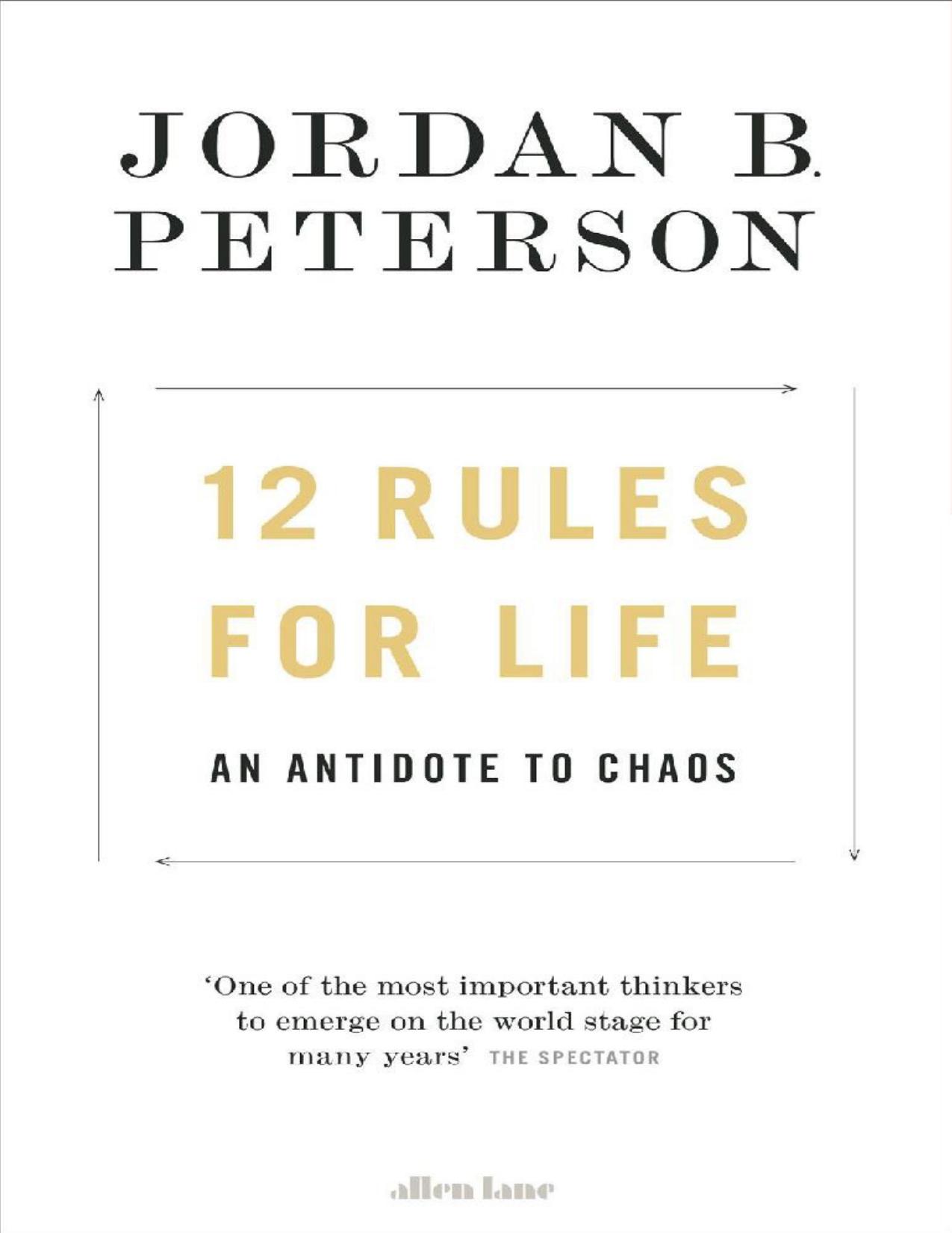12 Rules for Life by Jordan B. Peterson

Author:Jordan B. Peterson
Language: eng
Format: epub, pdf
Publisher: Penguin Random House LLC
Published: 2018-01-23T05:00:00+00:00
Christianity and its Problems
Carl Jung hypothesized that the European mind found itself motivated to develop the cognitive technologies of science—to investigate the material world—after implicitly concluding that Christianity, with its laser-like emphasis on spiritual salvation, had failed to sufficiently address the problem of suffering in the here-and-now. This realization became unbearably acute in the three or four centuries before the Renaissance. In consequence, a strange, profound, compensatory fantasy began to emerge, deep in the collective Western psyche, manifesting itself first in the strange musings of alchemy, and developing only after many centuries into the fully articulated form of science.139 It was the alchemists who first seriously began to examine the transformations of matter, hoping to discover the secrets of health, wealth and longevity. These great dreamers (Newton foremost among them140) intuited and then imagined that the material world, damned by the Church, held secrets the revelation of which could free humanity from its earthly pain and limitations. It was that vision, driven by doubt, that provided the tremendous collective and individual motivational power necessary for the development of science, with its extreme demands on individual thinkers for concentration and delay of gratification.
This is not to say that Christianity, even in its incompletely realized form, was a failure. Quite the contrary: Christianity achieved the well-nigh impossible. The Christian doctrine elevated the individual soul, placing slave and master and commoner and nobleman alike on the same metaphysical footing, rendering them equal before God and the law. Christianity insisted that even the king was only one among many. For something so contrary to all apparent evidence to find its footing, the idea that worldly power and prominence were indicators of God’s particular favor had to be radically de-emphasized. This was partly accomplished through the strange Christian insistence that salvation could not be obtained through effort or worth—through “works.”141 Whatever its limitations, the development of such doctrine prevented king, aristocrat and wealthy merchant alike from lording it morally over the commoner. In consequence, the metaphysical conception of the implicit transcendent worth of each and every soul established itself against impossible odds as the fundamental presupposition of Western law and society. That was not the case in the world of the past, and is not the case yet in most places in the world of the present. It is in fact nothing short of a miracle (and we should keep this fact firmly before our eyes) that the hierarchical slave-based societies of our ancestors reorganized themselves, under the sway of an ethical/religious revelation, such that the ownership and absolute domination of another person came to be viewed as wrong.
It would do us well to remember, as well, that the immediate utility of slavery is obvious, and that the argument that the strong should dominate the weak is compelling, convenient and eminently practical (at least for the strong). This means that a revolutionary critique of everything slave-owning societies valued was necessary before the practice could be even questioned, let alone halted (including the idea that wielding
Download
This site does not store any files on its server. We only index and link to content provided by other sites. Please contact the content providers to delete copyright contents if any and email us, we'll remove relevant links or contents immediately.
| Anthropology | Archaeology |
| Philosophy | Politics & Government |
| Social Sciences | Sociology |
| Women's Studies |
The remains of the day by Kazuo Ishiguro(7684)
Tools of Titans by Timothy Ferriss(7079)
The Black Swan by Nassim Nicholas Taleb(6312)
Giovanni's Room by James Baldwin(6044)
Inner Engineering: A Yogi's Guide to Joy by Sadhguru(6000)
The Way of Zen by Alan W. Watts(5893)
The Six Wives Of Henry VIII (WOMEN IN HISTORY) by Fraser Antonia(4869)
The Power of Now: A Guide to Spiritual Enlightenment by Eckhart Tolle(4860)
Asking the Right Questions: A Guide to Critical Thinking by M. Neil Browne & Stuart M. Keeley(4702)
Astrophysics for People in a Hurry by Neil DeGrasse Tyson(4691)
12 Rules for Life by Jordan B. Peterson(3837)
The Ethical Slut by Janet W. Hardy(3601)
Skin in the Game by Nassim Nicholas Taleb(3557)
Housekeeping by Marilynne Robinson(3531)
The Art of Happiness by The Dalai Lama(3463)
Double Down (Diary of a Wimpy Kid Book 11) by Jeff Kinney(3352)
Skin in the Game: Hidden Asymmetries in Daily Life by Nassim Nicholas Taleb(3338)
Walking by Henry David Thoreau(3300)
Ikigai by Héctor García & Francesc Miralles(3281)
